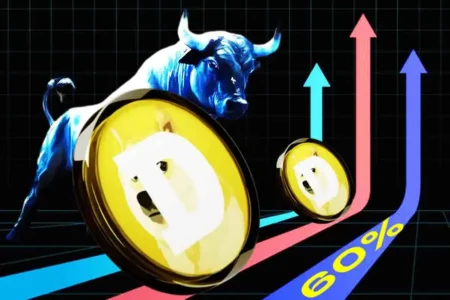Avoiding America’s Bankruptcy: Elon Musk’s DOGE Plan
The American economy is currently grappling with challenges from ongoing trade wars, rising US Treasury yields, and growing fears of a recession. Amid this turbulence, tech billionaire Elon Musk, in collaboration with his recently formed Department of Government Efficiency (DOGE), has put forth a bold plan to avert a potential economic downturn. Instead of advocating for reduced federal spending, Musk is focusing on accelerating GDP growth, suggesting a significant policy shift as a strategy to sidestep a looming debt crisis.
The Impact of Financial Markets and Trade Wars
As the Trump administration continues to engage in tariff disputes, particularly with the EU, volatility in the financial markets has surged. The 10-Year Treasury yield has recently spiked to 4.5%, raising alarms about economic recession as experts indicate that the odds of a downturn have increased to 43%. Simultaneously, this hostile economic landscape has been exacerbated by fluctuating cryptocurrency markets, with Bitcoin experiencing a sharp downturn following the imposition of significant tariffs. In contrast, positive developments in US-India trade relations suggest that some global markets might stabilize.
The Vision of DOGE and Economic Growth
Musk asserts that while DOGE is making strides toward improving governmental efficiency, only "radical improvements in productivity" can adequately address America’s financial woes. This approach emphasizes a holistic understanding of economic growth as a means to mitigate future risks, steering the nation clear of potential bankruptcy. By promoting innovative solutions and enhanced economic output, the plan envisions a more stable fiscal future that retains consumer and investor confidence.
A Shift in Government Spending Philosophy
US Treasury Secretary Scott Bessent has publicly pivoted from a stance of fiscal restraint to one advocating for growth. He expressed optimism during a recent interview, stating, "We can both grow the economy and control the debt." This dual strategy hinges on the premise that economic growth outpacing debt accumulation is critical for stabilizing national finances. Bessent’s remarks convey a noticeable change in governmental attitudes toward spending and growth, highlighting a proactive approach to tackling debt concerns.
Federal Reserve Outlook and Interest Rates
Concurrently, Austan Goolsbee, President of the Federal Reserve Bank of Chicago, has predicted that the Federal Reserve might implement interest rate cuts within 10 to 16 months. Such a move could further stimulate economic activity, allowing businesses and consumers to borrow at cheaper rates, thereby encouraging investment and spending. This potential policy adjustment adds layers to the ongoing discussions surrounding the economic recovery and financial stability in light of rising national debt figures.
The Role of Cryptocurrency in Economic Strategy
Elon Musk’s Tesla remains bullish on Bitcoin, retaining a substantial holding valued at $1.25 billion. This commitment to cryptocurrency underscores the increasing acceptance of digital assets as a viable investment strategy, even amidst economic uncertainty. The volatility displayed in traditional markets, particularly concerning tariffs, has implications for cryptocurrencies, leading investors to reconsider their diversification strategies. Musk’s faith in Bitcoin further signals a transformative shift in financial perspectives, one that embraces digital innovation.
Conclusion: Navigating Economic Turbulence
In conclusion, as the US faces a multifaceted economic crisis fueled by rising Treasury yields and tariff disputes, innovative strategies like Musk’s DOGE plan present an unorthodox path to recovery. Emphasizing accelerated GDP growth rather than austerity is a foundational shift that could help avert bankruptcy. With key figures in the government echoing similar sentiments around growth and debt management, there seems to be a growing consensus on the need for substantial economic revitalization. As we navigate these turbulent waters, the interplay between traditional fiscal policies and emerging technologies, such as cryptocurrency, remains a pivotal theme in America’s economic narrative.
















